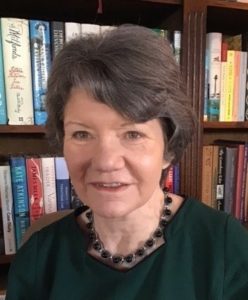Introducing Dame Caroline Swift
 Meet new Trustee, Dame Caroline, talking about her working life and why she joined us
Meet new Trustee, Dame Caroline, talking about her working life and why she joined us
Dame Caroline joined the Trust as a Trustee in January 2023.
Can you tell us something about yourself?
I was born – and continue to live – in Lancashire. I qualified as a barrister in 1977 and, for 27 years, worked from Chambers based in Manchester. During that time, I represented clients from all walks of life, including, nurses, care assistants, miners, shipbuilders, factory workers, fire and police officers – even zookeepers! I was appointed a Queen’s Counsel in 1993 and, between 2001 and 2005, I was Leading Counsel to the Shipman Inquiry.
In 2005, after the Inquiry ended, I was appointed a High Court Judge and spent the next 10 years travelling around England and Wales conducting criminal and civil trials. I retired as a Judge in 2015 and, in 2017, became Chair of the Medical Practitioners Tribunal Service, the body that organises and conducts disciplinary hearings involving doctors. My time in that role finished at the end of last year and, at the beginning of 2023, I was appointed a Trustee.
Whilst pursuing my legal career, I married my husband, also a barrister and later a High Court Judge. Indeed, we created history by being the first couple to be appointed to the role on the same day. We have two children and four young grandchildren, who keep us on our toes! In my retirement, I look forward to pursuing my longstanding interests of travelling, entertaining friends and family, walking in the countryside and observing wildlife, as well as my work for the Trust.
What attracted you to being a Trustee of the Thalidomide Trust?
I was in my late teens when I first read in The Sunday Times about the thalidomide tragedy, its life-changing effects on hundreds of individuals and the creation of the Trust. It was a story that has stayed in my mind ever since. So, when I became aware of the opportunity to become a Trustee of the Trust, I was immediately attracted.
Also, when a barrister, I specialised in representing individuals who had suffered catastrophic injuries of various types, necessitating a high level of personal care, different therapies, many items of specialised equipment and adaptations to their accommodation and motor vehicles. One of the most satisfying aspects of my task was to meet my clients and their families, to learn about their lives and how their injuries had affected them and to identify their specific needs. I would then conduct the litigation so as to ensure, as far as possible, that they received the money necessary to meet those needs.
It seems to me that, although the circumstances in which their injuries occurred are very different, there are many similarities between beneficiaries of the Trust and my former clients and their respective needs. These similarities were an important factor in my decision to apply to become a Trustee.
What have you enjoyed so far about the role?
I greatly enjoyed my Induction Day at the St. Neots’ office, when I had discussions with Deborah, the Trust Managers and other members of staff and learned a great deal about the working of the Trust. And it has been a pleasure and a privilege to meet my fellow Trustees, with their wide breadth of skills and experience.
So far, I have met only a few beneficiaries but have found those I have met extremely informative and look forward very much to meeting many more of you before too long.
Have there been – or do you see – any challenges so far in being a Trustee?
The Trust currently has 436 beneficiaries, and it seems to me that a significant challenge is - and will in the future be – ensuring that the Trustees and Trust staff have sufficient information to ensure that the interests of all the beneficiaries are heard and taken into account when decisions are made. This may be increasingly challenging as the beneficiary population ages. I am happy that work is currently underway to make it easier for beneficiaries to communicate their views.
Has anything been a surprise to you about the Trust and/or the beneficiary community?
The main surprise has been observing the apparent ease with which thalidomiders are able to adapt to their disabilities when carrying out everyday tasks such as using coffee machines, eating meals, using their laptops or opening doors. That 'ease' is of course misleading, since using alternative strategies must be more difficult than it looks and may often lead to future problems with the parts of the body used. But the apparent ease with which these tasks are done is surprising to the observer and displays a determination that must command respect and admiration.
